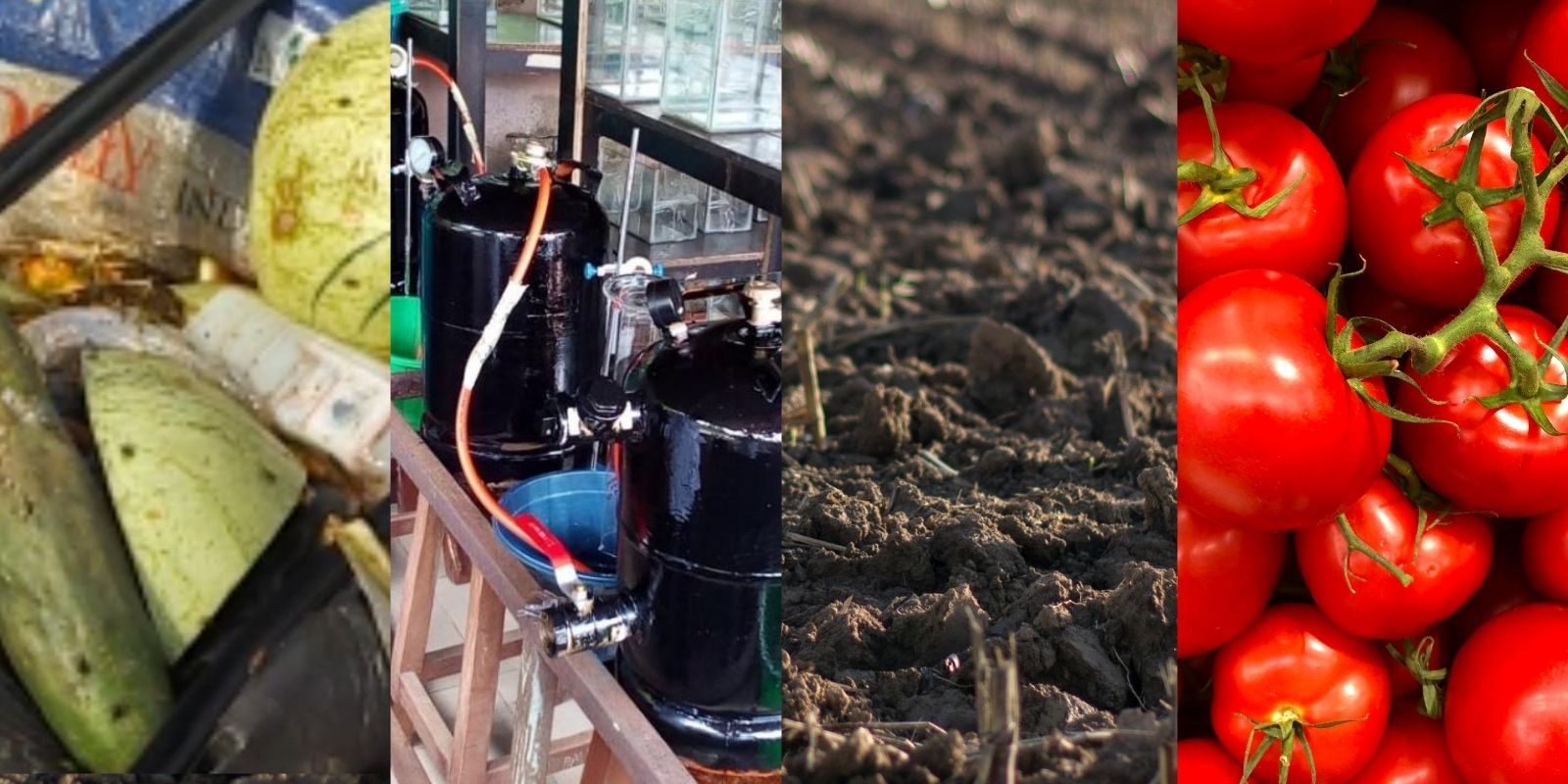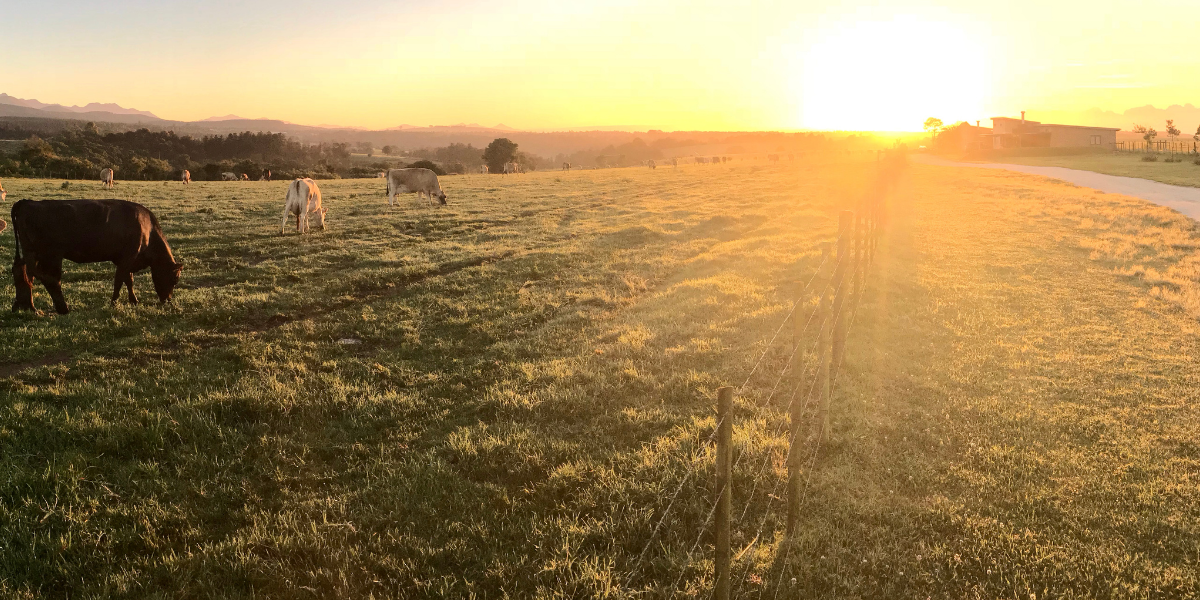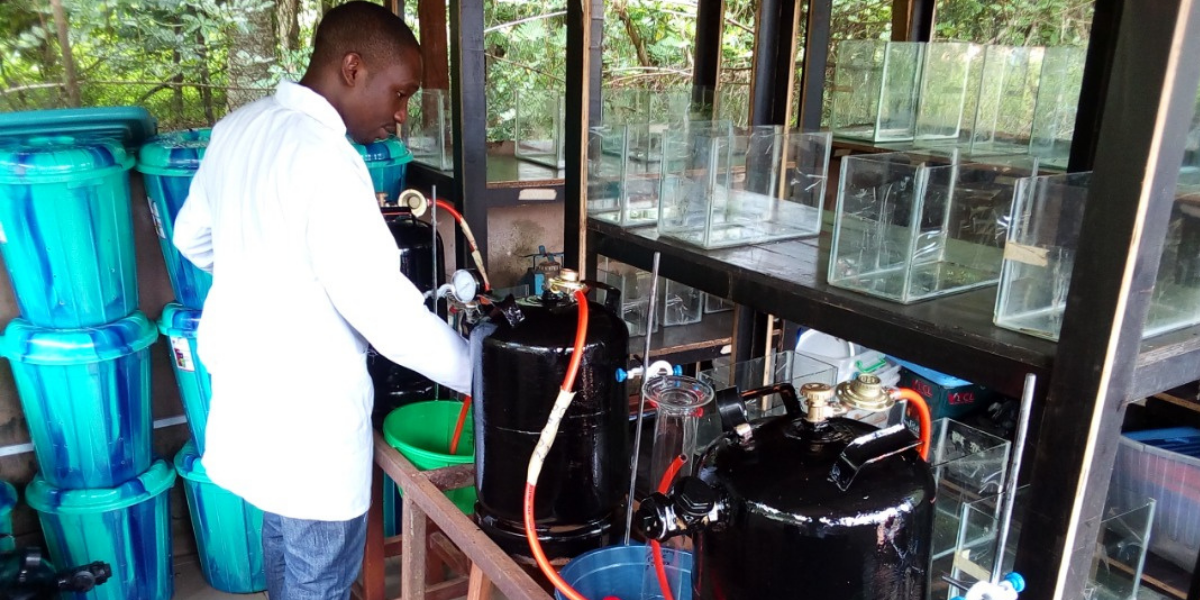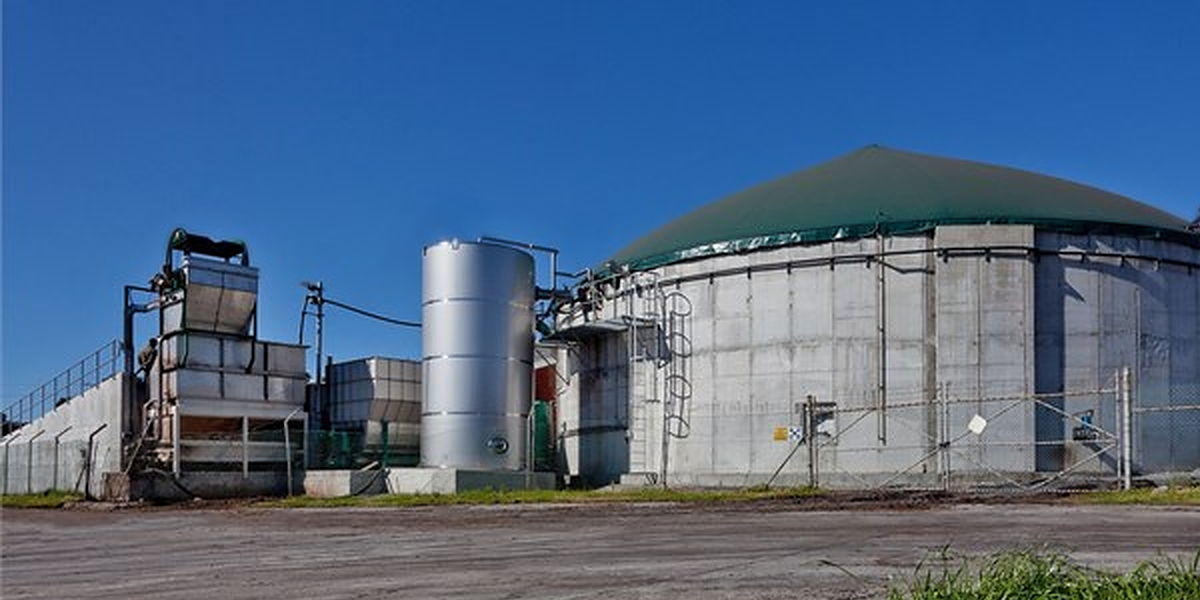
RECIRCULATE research at UniBEN explores new approaches to biogas production and the circular water economy
The vital role of energy supply in the development of any nation is recognised by “Affordable and Clean Energy” being one of the United Nations Sustainable Development Goals (SDG7). It is easy to equate ‘energy’ with access to electricity, and this is certainly a major problem for the countries of sub-Saharan Africa. For example, the 2020 update on progress towards SDG7 notes that lack of access to electricity is “…. increasingly concentrated in sub-Saharan Africa, where some 548 million persons, or 53 per cent of the population, lacked access to electricity”. It’s easy to forget that in many low and medium income countries, access to clean cooking fuels and technologies is also a major problem. The 2020 SDG7 progress report notes that globally “…. 2.8 billion persons …. relied primarily on inefficient and polluting cooking systems”. The same report goes on “…. in sub-Saharan Africa, the number of people without access to clean fuels for cooking increased” between 2010 and 2018. In Nigeria, cooking accounts for about 90% of total domestic energy consumption. Wood and charcoal remain the most common cooking fuels. Indoor air pollution from cooking with these fuels poses a significant threat to health, especially in women and children. The burden of fuel collection also falls mostly on women.
African countries also face sustainable waste management challenges. At the moment, many wastes end up in refuse dumps, are burnt or are discharged into rivers or the sea. Disposed of in this way, organic wastes are a major cause of air and water pollution. This is damaging for both the environment and human health. For example, water pollution by wastes contributes to public health impacts such as diarrhoea and cholera (SDG3).
One approach to solving both these problems is to develop systems of generating energy from waste. One such system is anaerobic digestion (AD) which converts organic wastes in to energy in the form of biogas. The University of Benin (UniBEN) are partners in the GCRF-funded RECIRCULATE project, together with Lancaster University, UK and the Council for Scientific and Industrial Research (CSIR), Ghana. Led by Prof. Lawrence Ezemonye and Prof. Christopher Emokaro, the RECIRCULATE research at UniBEN is considering various aspects of AD design and application, as a solution to both energy supply and waste disposal in Nigeria.
AD is by no means a new technology. AD systems have been trialed in Nigeria and there are some very successful large-scale systems using commercial waste-streams to generate electricity. For example, not far from Benin City, an award-winning commercial AD system uses waste from oil palm production to generate heat and power. Research at UniBEN, and elsewhere is Nigeria, is looking to develop efficient and reliable AD systems for domestic use. The three of us joined RECIRCULATE as the researchers on inter-linked PhD projects funded by UniBEN as part of RECIRCULATE. We are working with a wide range of partners to develop a portable biogas digester for household use in Nigeria. This will help improve the performance and sustainability of household AD systems. Making AD more widely usable will help families and communities to move away from charcoal, wood and kerosene for cooking. In turn, this should reduce air pollution, dependence on fossil fuels and the release of GHGs into the atmosphere.
Our projects form part of RECIRCULATE’s wider research in to the ‘circular water economy’. This integrates waste and sanitation, energy production using AD and the use of the end-product of AD, known as digestate, as a fertilizer and soil conditioner. In other words, our projects take problem wastes, things like cattle rumen content from abattoirs and food waste from market places and households, and uses them to produce both energy and digestate for use in food production.
Using digestate could help solve another problem that faces sub-Saharan Africa, the costs and potential environmental damage of fertilizers. One of the major soil types in Nigeria (referred to as ‘ultisols’ or ‘acrisols’) is typically acidic, low in plant nutrients and susceptibility to erosion when left bare. Digestate gives farmers a cheaper alternative to inorganic fertilizers to overcome the low productivity of ultisols. Recently there has been a move towards the use of poultry manure as an organic alternative, but this has quickly become too expensive for many local farmers. Local prices around Benin City are around 5000NGN (about £10) per 50kg bag.
Our initial analyses show that the nitrogen content of digestate depends on the feedstock. Co-digestion of mixed wastes gave nitrogen contents close to poultry manure, and we feel there is scope for further improvement, for example through composting. Digestate is also a rich source of organic matter that improves the soil structure, pH and water holding capacity, thereby improving crop production. In theory, by using digestate, we can improve soil properties reduce greenhouse gas emissions and reduce costs for growers.
We are testing this theory through a campaign of laboratory and experimental trials. We focus on tomatoes as a major vegetable in Nigeria, as well as an important element of many traditional Nigerian dishes, like jollof rice. Our experiments are still on-going, but our initial results are promising. Plant growth and fruit yield of tomato plants grown on soil amended with digestate from a range of feedstocks compared favourably with plants grown on soil fertilized with poultry manure or inorganic fertilizer. Our RECIRCULATE colleagues at Lancaster are also finding that digestate works well as a fertilizer.
Our overall aim is to solve some of the problems that have hampered long-term use of AD in Nigeria. We hope that the easier use of AD technology will contribute to improved sanitation, waste management and energy production. Urban agriculture using digestate as a sustainable fertilizer and soil conditioner will improve the food security of communities and households (SDG 2). We know that we still have a lot of work to do, but we are optimistic that RECIRCULATE’s vision of AD at the heart of a circular water economy is the key to broadening the sustainable use of this technology in sub-Sahara Africa.
 |
Engr. Ebuwa Isagba is a Civil Engineer with area of specialization in Environmental Engineering. She is a researcher in the Department of Civil Engineering, University of Benin, Benin City, Nigeria. Her role in the RECIRCULATE project is that of an Integrated Research Project researcher, where she is currently researching on recovering resource from anaerobic digested organic waste (digestate) to be used as a sustainable fertilizer. Ebuwa has a Master’s degree in Water Resources and Environmental Health Engineering and currently studying for her PhD in Environmental Engineering at the University of Benin. Ebuwa has made several research and development contributions towards environmental engineering projects ranging from waste management, bioenergy, environmental remediation, water and land pollution and control. She is passionate and committed to applying unique and innovative solutions to environmental problems. |
 |
Valerie Ifeyinwa Ofili Edosa is a graduate soil scientist working as a lecturer at the Department of Soil Science and Land Management, Faculty of Agriculture, University of Benin, Nigeria and is an Integrated Research Project researcher/PhD student in the RECIRCULATE project (WP4). Valerie has B. Agric and Masters degrees in Soil Science (University of Benin, Nigeria). Valerie is a member of the Soil Science Society of Nigeria and International Union of Soil Science, she has made several contributions to research on soil health, organic agriculture and waste management. |
 |
Newton A. Ihoeghian is a chemical engineer, academician and a researcher with the Department of Chemical Engineering, University of Benin, Nigeria. He is an Integrated Research Project researcher in the RECIRCULATE project. His research is focused on development of composite materials, effective and efficient management of waste to wealth, He is also interested in modelling, design and optimization of processes for optimal delivery. |
All articles in The FLOW are published under a Creative Commons — Attribution/No derivatives license, for details please read the RECIRCULATE re-publishing guidelines.




